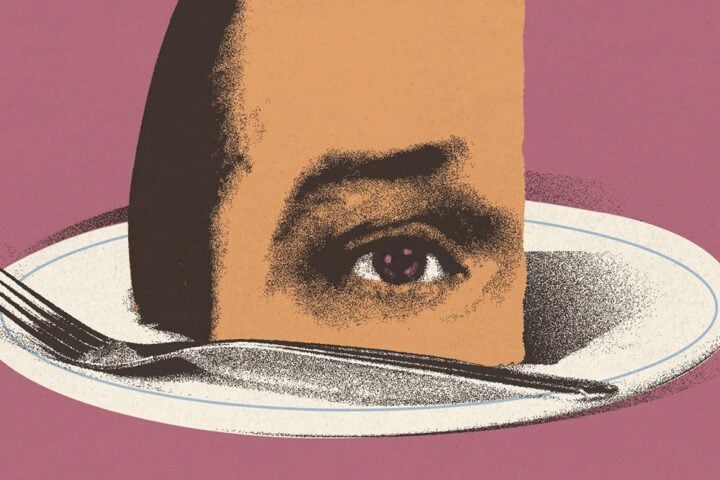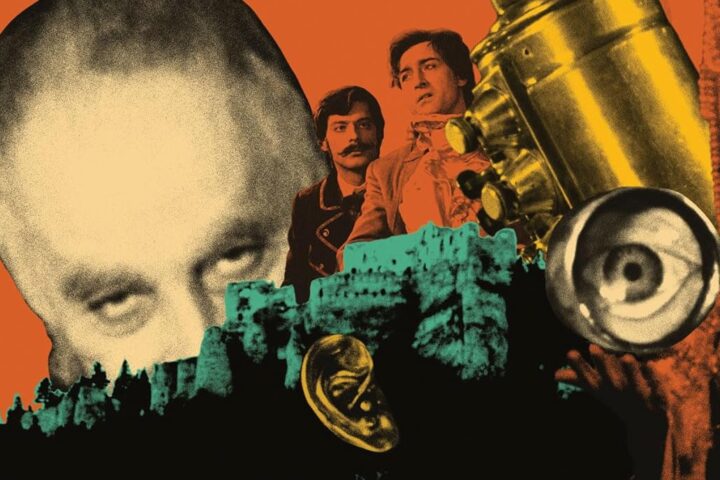![]() Czech writer-director Jií Weiss’s The Golden Fern is a dark and haunting fairy tale, albeit one that’s grounded in an earthy naturalism. Rather than lean heavily into the surreal, as these films often do, Weiss subtly weaves elements of the magical or miraculous into an otherwise straightforward narrative, thereby cannily introducing aspects of the uncanny. As for the moral lessons implicit in the story, The Golden Fern touches on weighty themes of arrogance, ingratitude, and infidelity.
Czech writer-director Jií Weiss’s The Golden Fern is a dark and haunting fairy tale, albeit one that’s grounded in an earthy naturalism. Rather than lean heavily into the surreal, as these films often do, Weiss subtly weaves elements of the magical or miraculous into an otherwise straightforward narrative, thereby cannily introducing aspects of the uncanny. As for the moral lessons implicit in the story, The Golden Fern touches on weighty themes of arrogance, ingratitude, and infidelity.
A narrator informs us that The Golden Fern begins very precisely on Saint John’s Eve, a feast day associated with Midsummer and the summer solstice. The occasion is often associated with the gathering of wild plants, and that’s how we meet Jura (Vit Olmer), a shepherd working his way through the dark woods until he encounters the titular vegetation. We’re never told precisely what the properties of the fern are, or why Jura wants it so badly, but we do find out that its seed can protect one from harm.
The theft of the sacred plant conjures up a flaxen-haired sylph (Karla Chadimová) who beseeches Jura to give it back. Instead, he proceeds to fall heedlessly in love with the creature he calls Lesanka, a name derived from the Czech word for “woods.” But Jura proves a faithless lover—not to mention one prone to outbursts of wounded pride: Whenever anyone makes a joke at his expense, he flies off into a rage. Jura’s ego is indeed that fragile.
Before the tale takes a turn into heartbreak, though, we’re treated to some lovely pastoral scenes. Weiss and DP Bedrich Batka (who also lensed Frantiek Vláil’s magisterial Marketa Lazarová) show a keen sense for the Czech countryside, its rolling hills and fields of head-high wheat, all overseen by a dazzling sun and a clear sky. There’s an exceptional sequence where Lesanka and Jura cut a rug at the local drinkery, spinning ecstatically around each other, the camera whirling frenziedly around both of them in turn, faster and faster, until it comes to resemble a more frenzied version of the prom dance from Carrie. But the happiness cannot last.
After a drunken debauch, Jura and his buddies Matej (Radoslav Brzobohat) and Martin (Zdenek Braunschlger) find themselves conscripted into the army of the Holy Roman Empire, trudging off to do battle against the Ottoman Turks. This portion of The Golden Fern suggests films as disparate as Barry Lyndon (for its emphasis on regimental rigidity) and The Adventures of Baron Munchausen (for its fabulous Orientalist grotesqueries).
Once among the rank and file, Jura falls under the spell of the raven-haired general’s daughter (Daniela Smutná), a haughty tease who sets for Jura seemingly impossible tasks for him to gain her affection, which only the magical shirt that Lesanka wove for him allows him to perform. These tasks involve a fair bit of broad slapstick humor at the expense of the Turkish vizier (Otomar Krejca). It’s precisely this lighthearted tone that insufficiently prepares the viewer for the film’s sober turn toward tragedy in the end.
Ultimately, The Golden Fern closes its circle in the dark woods that so often symbolize human error. Like Redmond Barry at the end of Barry Lyndon, Jura is mutilated but alive. He’s paid a heavy price for his careless love of Lesanka. Bereft, left to wander blindly from glade to glade, all he can do is try to conjure her up by calling her name. But, as Weiss’s haunting, captivating film suggests, once the magic is gone, there’s no getting it back.
Image/Sound
The 1080p HD transfer on Deaf Crocodile’s release of The Golden Fern looks perfectly ravishing overall, with only some minor blemishes evident here and there. Bedich Bakav’s sumptuously rendered black-and-white Scope cinematography makes the most of the broad landscapes as well as the dappled play of light and shadow. The Czech Master Audio mono mix does well by the emotive orchestral score from Jií Srnka.
Extras
The commentary track from Czech cinema expert Irena Kovarova and film historian Peter Hames painstakingly pores over Jií Weiss’s filmography, doing an excellent job of raising interest in a number of titles that so far remain inaccessible to Western viewers. They also supply some fascinating biographical information on many of the lead actors.
Elsewhere, a visual essay from film historian Evan Chester succinctly covers the major themes and visual strategies of The Golden Fern. In an interview with Deaf Crocodile co-founder Dennis Bartok, Weiss’s son relates many interesting stories about his late father, including a real jaw-dropper about how he made his escape from Nazi-occupied Czechoslovakia.
Also included on the disc are three short films Weiss made in the 1930s: “The Sun Shines on the River Lunice,” from 1936, is a bucolic paean to a group of canoeing friends; “Song of Ruthenia,” from 1937, is more ethnographic, but equally poetic, in its examination of a region populated by isolated groups of Jews, Roma, and Slavs living in precarious balance; and “The Rape of Czechoslovakia,” from 1939, was made in exile in England with footage Weiss smuggled out the country, set to stately narration from Cecil Day-Lewis (actor Daniel Day-Lewis’s father).
Overall
A haunting fable about arrogance and infidelity, Jií Weiss’s The Golden Fern gets a lovely transfer and excellent extras from Deaf Crocodile.
Since 2001, we've brought you uncompromising, candid takes on the world of film, music, television, video games, theater, and more. Independently owned and operated publications like Slant have been hit hard in recent years, but we’re committed to keeping our content free and accessible—meaning no paywalls or fees.
If you like what we do, please consider subscribing to our Patreon or making a donation.


